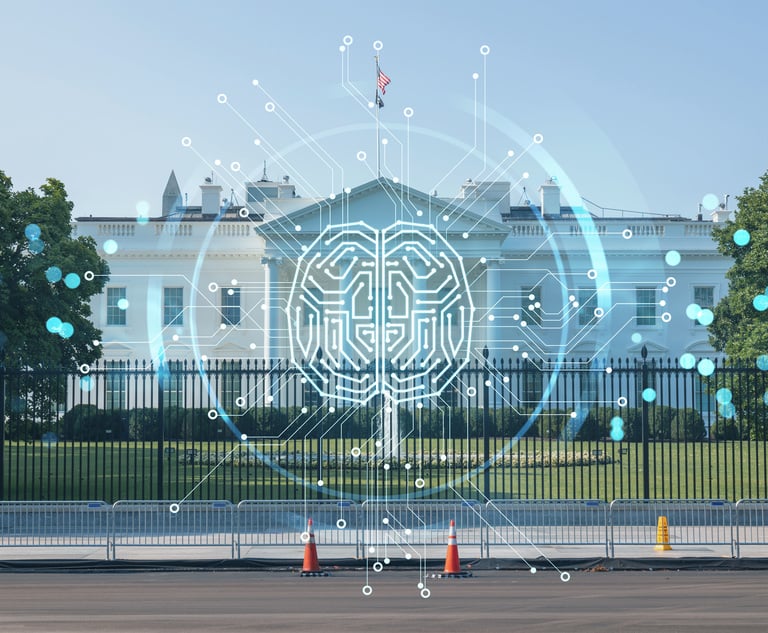 Credit: VectorMine/Adobe Stock
Credit: VectorMine/Adobe Stock Faking It: Protecting Your Financial Institution Against Deepfakes
As the number of fraudulent attempts based on deepfake technologies continues to grow, financial institutions must become increasingly vigilant to protect themselves, their employees, and their customers. In this article, we will address several things financial institutions can do to prevent fraud associated with deepfake technologies.
September 14, 2023 at 11:00 AM
5 minute read
Fraudulent activity in the financial industry is nothing new. The techniques employed by fraudsters have ranged from fake check fraud and credit card fraud to identity theft and financial account takeovers. For years, financial institutions have implemented a variety of measures to combat these frauds. Now, thanks to the proliferation of sophisticated and low-cost artificial intelligence (AI) technologies, financial institutions are facing tougher challenges than ever before. One of the biggest challenges facing financial institutions today is that methods commonly used to prevent fraud, such as phone or video calls, are now being used by criminals to perpetrate fraud using deepfakes. This article will discuss the risks financial institutions are facing from these technologies and provide some practical solutions you should consider as you continue to develop your fraud prevention program.
What are Deepfakes?
Deepfakes is the use of a type of AI called deep learning to create fake images, audio, or videos of events or individuals. Many of you have likely seen this technology in action in recent months. The examples are far-ranging, from videos of Mark Zuckerberg claiming "we own you" and Morgan Freeman explaining that "I am not Morgan Freeman" while providing an overview of synthetic reality, to Jon Snow bemoaning "I'm sorry we wasted your time" and apologizing for the ending of Game of Thrones (explicit). Videos are not the only content being faked. You've also likely seen the viral fabricated images of Pope Francis wearing a floor-length white puffer jacket and fake images of former President Donald Trump's arrest. Complicating matters even more, there are a variety of low-cost tools that can generate deepfake audio content, such as a fraudulent voicemail that was recently used in an attempt to obtain a fraudulent money transfer.
This content has been archived. It is available through our partners, LexisNexis® and Bloomberg Law.
To view this content, please continue to their sites.
Not a Lexis Subscriber?
Subscribe Now
Not a Bloomberg Law Subscriber?
Subscribe Now
NOT FOR REPRINT
© 2024 ALM Global, LLC, All Rights Reserved. Request academic re-use from www.copyright.com. All other uses, submit a request to [email protected]. For more information visit Asset & Logo Licensing.
You Might Like
View All
Embracing Gen AI, Many Legal Departments Don't See Their Firms as Innovative

As AI-Generated Fraud Rises, Financial Companies Face a Long Cybersecurity Battle

Three Reasons CLOs Are Critical to the Successful Adoption of Generative AI
Law Firms Mentioned
Trending Stories
- 1The Key Moves in the Reshuffling German Legal Market as 2025 Dawns
- 2Social Media Celebrities Clash in $100M Lawsuit
- 3Federal Judge Sets 2026 Admiralty Bench Trial in Baltimore Bridge Collapse Litigation
- 4Trump Media Accuses Purchaser Rep of Extortion, Harassment After Merger
- 5Judge Slashes $2M in Punitive Damages in Sober-Living Harassment Case
Who Got The Work
Michael G. Bongiorno, Andrew Scott Dulberg and Elizabeth E. Driscoll from Wilmer Cutler Pickering Hale and Dorr have stepped in to represent Symbotic Inc., an A.I.-enabled technology platform that focuses on increasing supply chain efficiency, and other defendants in a pending shareholder derivative lawsuit. The case, filed Oct. 2 in Massachusetts District Court by the Brown Law Firm on behalf of Stephen Austen, accuses certain officers and directors of misleading investors in regard to Symbotic's potential for margin growth by failing to disclose that the company was not equipped to timely deploy its systems or manage expenses through project delays. The case, assigned to U.S. District Judge Nathaniel M. Gorton, is 1:24-cv-12522, Austen v. Cohen et al.
Who Got The Work
Edmund Polubinski and Marie Killmond of Davis Polk & Wardwell have entered appearances for data platform software development company MongoDB and other defendants in a pending shareholder derivative lawsuit. The action, filed Oct. 7 in New York Southern District Court by the Brown Law Firm, accuses the company's directors and/or officers of falsely expressing confidence in the company’s restructuring of its sales incentive plan and downplaying the severity of decreases in its upfront commitments. The case is 1:24-cv-07594, Roy v. Ittycheria et al.
Who Got The Work
Amy O. Bruchs and Kurt F. Ellison of Michael Best & Friedrich have entered appearances for Epic Systems Corp. in a pending employment discrimination lawsuit. The suit was filed Sept. 7 in Wisconsin Western District Court by Levine Eisberner LLC and Siri & Glimstad on behalf of a project manager who claims that he was wrongfully terminated after applying for a religious exemption to the defendant's COVID-19 vaccine mandate. The case, assigned to U.S. Magistrate Judge Anita Marie Boor, is 3:24-cv-00630, Secker, Nathan v. Epic Systems Corporation.
Who Got The Work
David X. Sullivan, Thomas J. Finn and Gregory A. Hall from McCarter & English have entered appearances for Sunrun Installation Services in a pending civil rights lawsuit. The complaint was filed Sept. 4 in Connecticut District Court by attorney Robert M. Berke on behalf of former employee George Edward Steins, who was arrested and charged with employing an unregistered home improvement salesperson. The complaint alleges that had Sunrun informed the Connecticut Department of Consumer Protection that the plaintiff's employment had ended in 2017 and that he no longer held Sunrun's home improvement contractor license, he would not have been hit with charges, which were dismissed in May 2024. The case, assigned to U.S. District Judge Jeffrey A. Meyer, is 3:24-cv-01423, Steins v. Sunrun, Inc. et al.
Who Got The Work
Greenberg Traurig shareholder Joshua L. Raskin has entered an appearance for boohoo.com UK Ltd. in a pending patent infringement lawsuit. The suit, filed Sept. 3 in Texas Eastern District Court by Rozier Hardt McDonough on behalf of Alto Dynamics, asserts five patents related to an online shopping platform. The case, assigned to U.S. District Judge Rodney Gilstrap, is 2:24-cv-00719, Alto Dynamics, LLC v. boohoo.com UK Limited.
Featured Firms
Law Offices of Gary Martin Hays & Associates, P.C.
(470) 294-1674
Law Offices of Mark E. Salomone
(857) 444-6468
Smith & Hassler
(713) 739-1250







